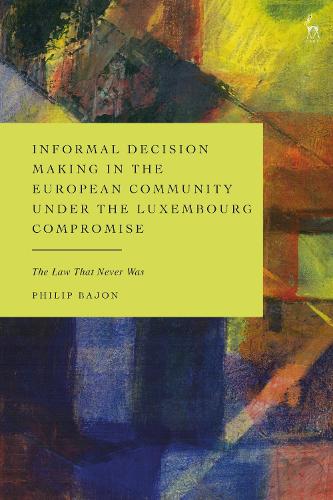
Informal Decision Making in the European Community under the Luxembourg Compromise: The Law That Never Was
(Hardback)
Publishing Details
Informal Decision Making in the European Community under the Luxembourg Compromise: The Law That Never Was
By (Author) Philip Bajon
Bloomsbury Publishing PLC
Hart Publishing
16th October 2025
United Kingdom
Classifications
Professional and Scholarly
Non Fiction
Physical Properties
Hardback
448
Width 156mm, Height 234mm
Description
This book analyses the informal decision making process in the EU against the background of a gradually emerging European legal order.
Based on extensive multi-archival research in the UK, France, Germany, the Benelux countries and in Community institutions, the book explores the resistance against majority rule under the so-called Luxembourg Compromise of 1966, a European soft law that allowed Member States to invoke vital national interests and to veto legislation. This gentlemens agreement was never sanctioned or codified. However, as a rule of the game it had a significant impact on the operations of the EU for several decades and became an integral part of the EUs consensus approach. Its underlying rationale is still alive in the present-day EU.
Presenting a deeply revisionist account of European law and politics, the book demonstrates how the Luxembourg arrangement served as a compromise between the Treaty text and political reality, as a counterweight to technocratic ideas, and as a bridge between irreconcilable divides over European unification.
It includes case studies from 1965 - 2000, such as the Eurosclerosis of the 1970s, British exceptionalism as an EU member, the European revival of the mid-1980s, and intergovernmentalism on the verge of negotiating the Maastricht Treaty.
Highly original in its interdisciplinary, comprehensive and archivally-rooted method, the book interrogates the most important and controversial debates about the past, present and future of the European Union.
Author Bio
Philip Bajon is Senior Lecturer in Law at Aston University, Birmingham, UK.
